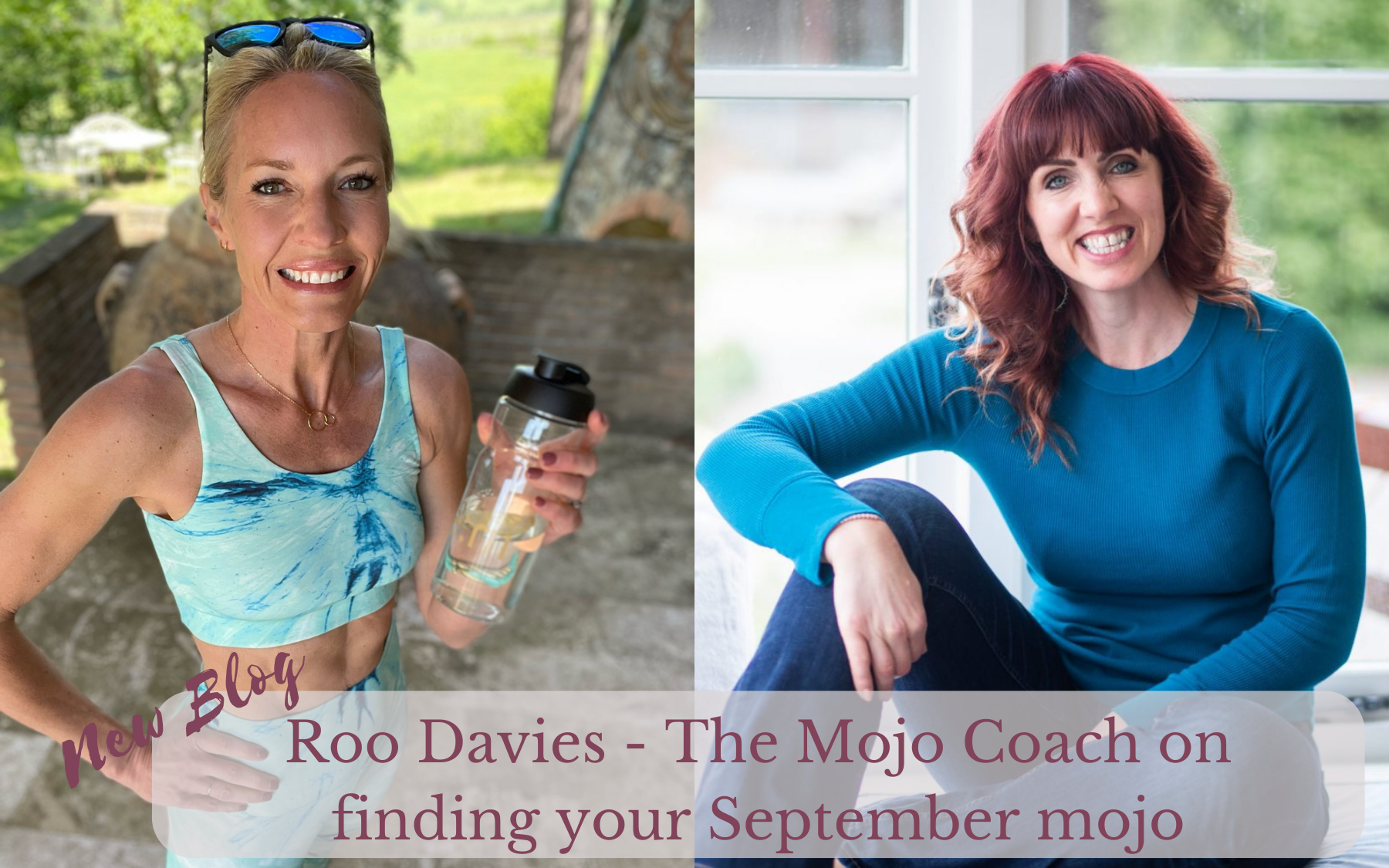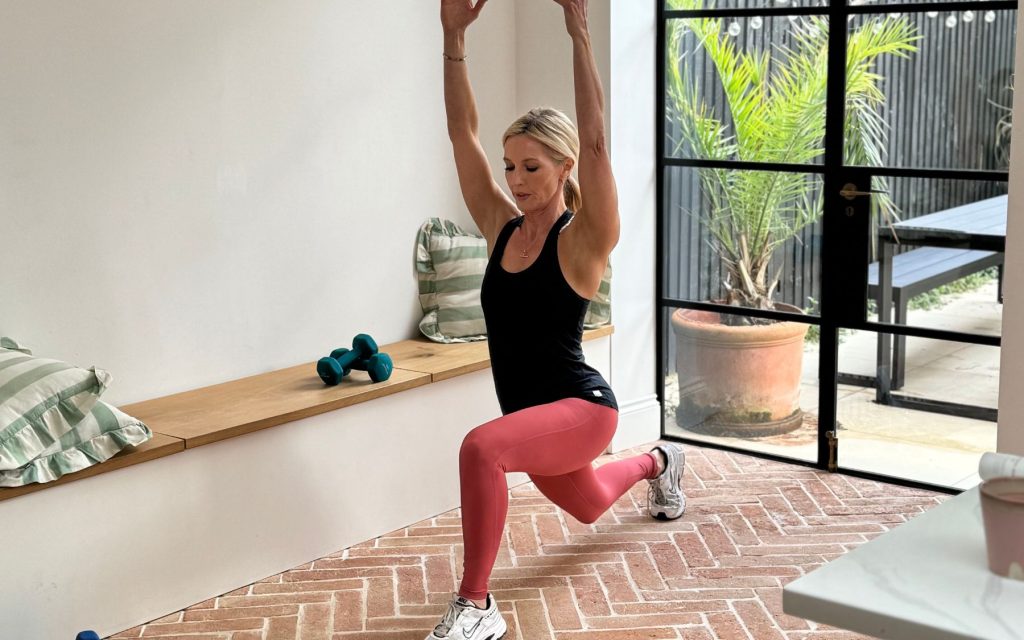
Roo Davies – The Mojo Coach on finding your September mojo
Roo Davies – the go-to coach if you want to find your passion, positivity and purpose shares some insights with us to help you find you September motivation and keep it! Roo has a wealth of experience across marketing, global team management giving her a unique ability to help you achieve your goals across life, business and career. Here’s what Roo has to say…
Tell us about yourself. How did you get into life & mindset coaching?
Known as The Mojo Coach, I help people tap onto their passion, positivity and purpose aka rediscover their mojo.
Several years ago, a coach helped me wake up. I was literally sleep walking through life. I wasn’t unhappy but I was going through the motions whilst living a very busy life. I didn’t realise it at the time, but I was operating in autopilot. I had a successful career and was a busy Mum of three young kids but I wasn’t tapping to any specific purpose or passion which left me feeling adrift.
I began to ask myself questions I’d never really explored such as: What makes me happy? What is important to me? What do I want to achieve? How am I getting in my own way of making important things happen?
An incredible coach helped me navigate my way, connect with myself and my purpose and ultimately gain control and shape my next chapter. Part of that process was switching careers and becoming a coach myself. Whilst leaving my comfort zone, of a salaried job that I was good at, was daunting, coaching helped me switch gears – giving me not just the clarity but the confidence.
How much of a role does our mindset play in our daily lives?
Your mindset is EVERYTHING. Literally every thought you have, decision you make and action you take is influenced by your mindset.
The perspective that you chose to look at yourself, others, and the world around you shapes your daily life; for example, how you manage stress, adapt new habits, cope with setbacks and how confident and resilient you feel.
How important is mindset when it comes to fitness and working out?
Your mindset is as important as your physical ability when it comes to working out.
Motivation and discipline are referred a lot when it comes to fitness. You need both. Motivation is having a compelling reason why you to want to do something, and discipline will see you through the times when motivation wanes.
BUT another mindset superpower is flexibility. In other words, not being constrained with rigid thoughts. Watch out if you use the words ‘always’ and ‘never’. For example “I always get it wrong” “I’ll never be able to do that” and “I always lose motivation”.
What is self-sabotage?
It’s when you get in your own way. You trip yourself up with unhelpful thoughts and actions. This negatively impacts how you feel about yourself and the progress you’re making. Some typical examples of self-sabotage are:
- Not having any boundaries or having trouble sticking to them. You say yes when you really want to say no because you want to avoid conflict or people please.
- Making up fictious stories which you believe such as “I’m too old”, “People will laugh at me”, “I’ll slow the others down”, “They’ll think I’m rubbish”.
- Comparing yourself to your previous self or others. This creates an artificial and unhelpful benchmark for which you will conclude you are not meeting.
- Not being “good enough” aka imposter syndrome. Not fit enough, not motivated enough, not experience enough, not knowledgeable enough…
How can negative thinking/self-limiting beliefs hold us back?
You literally become a prisoner to your thoughts. They dictate your decisions, dampen your self-belief and warp your sense of self-worth and value.
This can hold you back by:
- Playing it safe: you stick in your comfort zone and don’t try new things.
- Procrastinating: go round and round in circles, second guessing and doubting yourself.
- Catastrophising: you imagine the most disastrous scenarios that will most probably never happen.
- Robbing your confidence: you don’t feel able to do things that are new or feel hard.
What are your top tips for someone struggling with motivation when it comes to working out?
- Know your Why! Make sure that your reasons really matter to you.
- Find something that you enjoy! If you hate running, don’t run. If you like working out with people, join a class or train with other people. If you love music, create a playlist full of your favourite tunes to work out to.
- Make it part of your daily routine. If it’s hard to find time for exercise, schedule your workout as you would any other important activity.
- Be accountable. Accountability is a great way to keep on track. Tell others what you intend to do, arrange to meet others or book in with a trainer.
- Reward yourself. Give yourself a pat on the back after each workout and take notice the good feelings that exercise gives you. Also consider external rewards too, set yourself goals (small, short-term goals as well as bigger, longer-term goals) and when you reach them, treat yourself. Better yet, link your rewards to fitness, a new pair of leggings or workout equipment maybe.
Why is September the new January?
September really is a fantastic time to build new habits and get back into the swing of things after the summer break. The summer period whilst fun is generally quite chaotic with holidays, more socialising than usual and school holidays for those with young children. Often by September we are craving structure and a sense of routine. In other words, we are ready to kick start something new and have something to anchor our days.
Combine this with most of us having some time out over the Summer to reflect on where we’re at, how our year is going and what we’d like to achieve next means that it is a month bursting with mission and purpose.
Unlike January the September weather is still nice with plenty of light in the mornings and evenings so our mood is naturally lifted by our environment. Also, unlike January there is no pressure to create huge life changes and tell everyone what your resolutions are. There is no bandwagon for you to fall off… you can focus on doing your thing… and doing it well!
You encourage your clients to goal set regularly, what would your top tips be when it comes to setting fitness or performance goals?
- Like any goal, make sure that it is SMART (specific, measurable, achievable, realistic and time stamped). The way that you formulate your goals is so important, make sure you aren’t simply stating an intention. For example, you can intend to run faster, or you can set a goal to run 10k under an hour without stopping by November 14th. That is a SMART goal.
- Whilst you may have a big meaty goal, create baby goals to help get you there. Taking small sustainable steps are the way to reach the top of the summit and try and do something every day which will move you one step closer to your goals.
- Celebrate your successes. Don’t be complacent of the progress you are making. It can be tempting to only look forward and keep your eye on the prize. Remember to take stock of what you have achieved – it’s a great idea to do this each week and share it with your partner, friends or trainer.
- Book an event. This is a great way to create a milestone (your summit) which will become the focal point for your training and help keep your motivation high.
Find out more about Roo, the mojo coach here
Intrigued to know more or have a go at Caroline’s Circuits? Try a class for free here or read more about the platform here.
If you have any questions please do get in touch.
For more workout inspo and to find out a bit more about me check out my Instagram.
Caroline x



